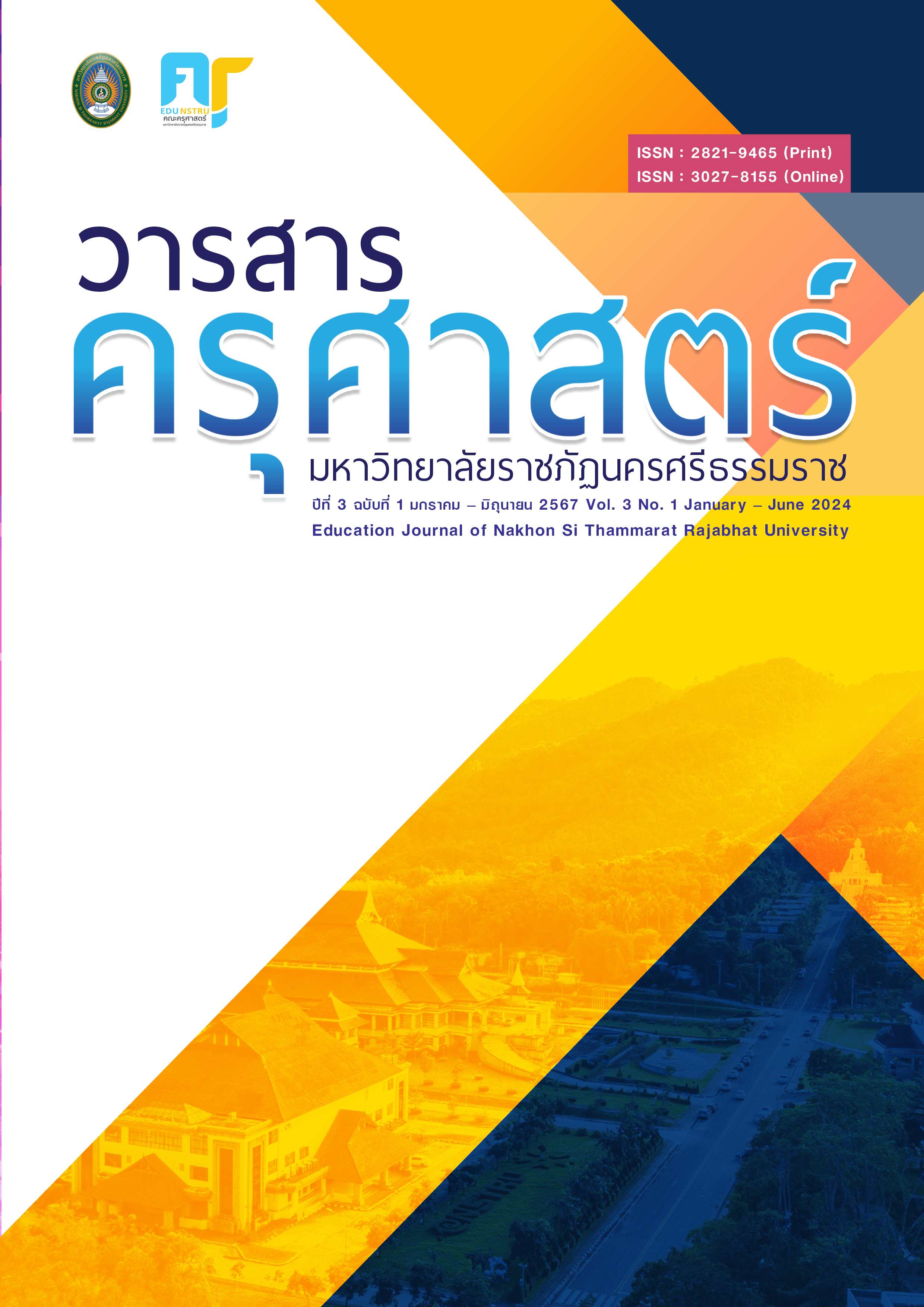Development of Constructivist Learning Management Instruction Using Google Classroom for Creating Presentations with Google Slides to Promote Understanding and Digital Literacy Skills for Grade 3 Students in Technology (Computer Science)
Main Article Content
Abstract
Research Objectives to 1) compare the digital literacy skills of Grade 3 students before and after learning using the constructivist learning model combined with Google Classroom 2) enhance the academic achievement of Grade 3 students, ensuring scores meet or exceed 60% and 3) study the satisfaction of Grade 3 students with the teaching and learning process using the constructivist learning model combined with Google Classroom.
This research employed simple random sampling, selecting one Grade 3/2 classroom consisting of 34 students. The research tools included 1) a 10-hour learning management plan, 2) an academic achievement test 3) a digital literacy skills assessment and 4) a student satisfaction survey regarding the learning process using Google Classroom. The statistical methods used for data analysis included mean, standard deviation, percentage, and t-test.
The research findings revealed that 1) students digital literacy skills improved after the learning intervention, with usage skills increasing by 26.47%, creation skills by 35.88%, comprehension skills by 31.76%, and access skills by 31.18% 2) the average post-test academic achievement scores were significantly higher than the pre-test scores by 13.15 points at the .05 level and 3) students' satisfaction with the learning process using Google Classroom was very high, with an average score of (= 4.43, S.D. = 0.78)
Article Details

This work is licensed under a Creative Commons Attribution-NonCommercial-NoDerivatives 4.0 International License.
บทความที่ได้รับการตีพิมพ์เป็นลิขสิทธิ์ของวารสารครุศาตร์ มหาวิทยาลัยราชภัฏนครศรีธรราช
ข้อความที่ปรากฏในบทความแต่ละเรื่องในวารสารวิชาการเล่มนี้เป็นความคิดเห็นส่วนตัวของผู้เขียนแต่ละท่านไม่เกี่ยวข้องกับวารสารครุศาสตร์ มหาวิทยาลัยราชภัฏนครศรีธรรมราช
References
Jobsdb. (2023, July 07). Digital Literacy: How important are digital literacy skills to our organization. Jobsdb. https://th.jobsdb.com/th/career-advice/article/digital-literacy (in Thai)
Ministry of Education. (2019). Act National Education (No. 4) 2019. https://www.moe.go.th/wp-content/uploads/2022/01/MOE-Authority.pdf (in Thai)
Nillapun, M. (2014). Educational research methods (8 th ed.). Nakhon Pathom: Silpakorn University. (in Thai)
Seng, R., Loyapha, R., Buenae, S., Lemaeng, A. & Phadung, M. (2022). The Development of an Educational Application to Enhance Digital Literacy Skills for Grade 1 Elementary School Students. The 7th Nation Science and Technology Conference | NSCIC 2022. (pp. 1088 - 1095). Retrieved from https://citly.me/t0cwM (in Thai)
Somabut, A. (2013, September 25). Constructivist Theory. WordPress.com. https://teacherweekly.wordpress.com/2013/09/25/constructivist-theory/ (in Thai)
Srichalard, P. & Promchana, A. (2020). Thai Thai: English. Journal of Inclusive and Innovative Education, 4(3), 82–92. Retrieved from https://so01.tci-thaijo.org/index.php/cmujedu/article/view/240616 (in Thai)
Sukkhai, L., Photivechukul, S. & Phannak, R. (2022). Develop Lessons With Google Classroom On The Pan Din Tin Rak Chaiyaphum For Students In Grade 1. Journal of MCU Ubon Review, 7(2), 2211-2222. Retrieved from https://so06.tci-thaijo.org/index.php/mcjou/article/view/258550/173920 (in Thai)


